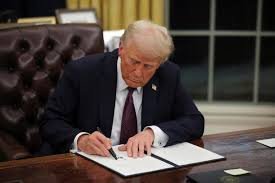On a stormy January morning, the world watched as President Donald Trump signed an executive order that would send shockwaves through international aid systems. The order, which halted all US foreign aid to countries worldwide—except for Egypt and Israel—has left nations dependent on American funding grappling with uncertainty. Among the most affected is Nigeria, a country where US aid has historically supported critical sectors such as healthcare, education, agriculture, and governance. As the dust settles on this decision, the implications for Nigeria’s most vulnerable populations are becoming alarmingly clear. Gom Mirian, report.
A Decade of Support: The U.S. Commitment to Nigeria
Over the past decade, the US has provided $7.8 billion in foreign aid to Nigeria, focusing on health, security, and economic growth. A significant portion of this aid has been directed toward combating infectious diseases through initiatives like the President’s Emergency Plan for AIDS Relief (PEPFAR), which has provided life-saving support to Nigerians living with HIV/AIDS.
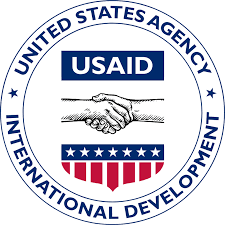 Additionally, US foreign aid has bolstered Nigeria’s security efforts, including counterterrorism programs and military training, while supporting economic development through agricultural assistance for farmers.
Additionally, US foreign aid has bolstered Nigeria’s security efforts, including counterterrorism programs and military training, while supporting economic development through agricultural assistance for farmers.
The Humanitarian Crisis: A Looming Disaster
In Nigeria, where conflict and displacement have ravaged regions like the Northeast, U.S. foreign aid has been a lifeline for millions. Programs funded by the U.S., such as those run by the World Food Programme (WFP), UNICEF, and the Emergency Food Security Programme (EFSP), have provided essential food, healthcare, and sanitation services to communities in Borno, Adamawa, and Yobe states. The suspension of U.S. aid for a 90-day review period threatens to disrupt these services, leaving countless individuals at risk of severe malnutrition and preventable diseases.
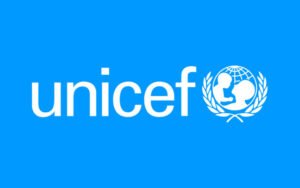
In an interview with Africa Health Report, AHR on Thursday, the immediate past communication specialist for UNICEF Nigeria, Dr. Geoffrey Njoku, stressed the gravity of the situation: “The withdrawal of U.S. foreign aid will undoubtedly impact various interventions that UNICEF and other NGOs support in Nigeria, particularly in health and nutrition. Programs in immunisation, vaccine procurement, and nutrition are already feeling the strain. Many NGOs are suspending plans due to uncertainty about funding.”
While Dr. Njoku acknowledges that other international donors may step in to fill the gap, he warns that the immediate effects will be significant. “The truth also is that, of course, there are other funders like the Japanese agency, German fund, UK fund, among others, still there mercifully. That means it’s not like the whole of interventions and programming in Nigeria will suffer completely. No, I believe that other donors will step up and give a little bit more to cover for what used to come from the American source. I think that’s what will happen in the long- run, but programs in maternal health, immunization, and child health will be affected. There is no doubt about that,” he said.
Health Programs Under Threat
The U.S. has long been a crucial partner in combating infectious diseases in Nigeria. Initiatives like the President’s Emergency Plan for AIDS Relief (PEPFAR) and the President’s Malaria Initiative (PMI) have significantly reduced mortality rates from diseases such as HIV/AIDS and malaria. In 2023 alone, U.S. aid supported millions of Nigerians through vital health programs. However, the freeze on foreign aid threatens to reverse this progress.
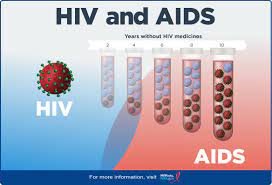
“There’s no doubt that the disruption of these funding streams will be a significant blow to Nigeria’s health programs,” stated the Director General of the National Agency for the Control of AIDS (NACA), Dr. Temitope Ilori, during a recent health conference in Lagos. “But we are determined to forge ahead. We are already exploring domestic funding mechanisms and partnerships to ensure that our efforts in combating HIV/AIDS do not falter.”

Despite Dr. Ilori’s optimism, the reality is stark. Bridging the funding gap left by the U.S. will require a monumental effort from Nigeria’s government and its international partners.
Findings by the Africa Health Report (AHR) reveal that CS-SUNN, a non-governmental organisation dedicated to addressing malnutrition in Nigeria and primarily funded by USAID, has paused its programs, interventions, and ongoing recruitment due to the recent executive order.
The World Health Organisation (WHO) has also felt the impact, with Director-General Tedros Ghebreyesus announcing in an internal memo that the agency would need to cut costs, freeze recruitment, and review key health programs to offset the loss of funding.
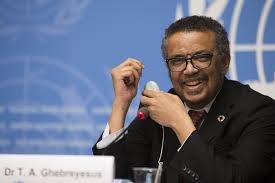
The Education Sector: A Critical Setback
The U.S. has been instrumental in improving educational access in Nigeria, particularly in conflict-affected regions. Programs like UNICEF and the Northern Education Initiative (NEI) have provided educational opportunities for girls and children displaced by violence. The suspension of this aid is likely to lead to a steep decline in educational opportunities, particularly for girls in the north.
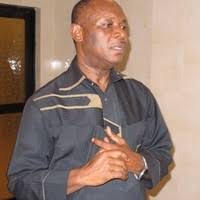
Dr. Njoku believes that this situation serves as a wake-up call for Nigeria. ” We should have it at the back of our mind that external funding is not the way to go. We can’t keep relying on money coming from outside because one day something like this will happen. Today it’s Trump, tomorrow someone else can come in—maybe in the UK or Japan—another Trump-like person can come into power in the UK or Japan and do the same thing. So we need to know that these funds are not sustainable,” he asserted. “We need to think about how we can put more money into development programs ourselves.”.
Agriculture and Economic Growth: A Delayed Future
The economic and agricultural sectors are also poised to suffer from the U.S. foreign aid suspension. Initiatives like Feed the Future, which helps smallholder farmers improve productivity and food security, have been lifelines for many in rural communities. Without U.S. support, progress in these vital areas may stall, leaving millions without essential services.
An agricultural expert warned, Dr. Charles Okoro, “The freeze on U.S. foreign aid will create a bottleneck in Nigeria’s agricultural development. Smallholder farmers who rely on U.S. grants and technical support will be left without the resources they need to increase production. This could lead to food shortages and increased poverty in rural areas.”
Governance and Democracy: A Fragile Future
In addition to humanitarian and health interventions, U.S. funding has been critical in strengthening Nigeria’s democratic institutions. The suspension of aid could undermine Nigeria’s progress in these areas, particularly as the country prepares for crucial elections. Without U.S. support, there is a real risk that corruption and inefficiencies could prevent free and fair elections, further destabilizing the country.

The Uncertain Road Ahead
The suspension of U.S. foreign aid to Nigeria is a complex issue with far-reaching consequences. From health programs to education and agriculture, the repercussions of this decision will be felt across multiple sectors. While some officials express optimism about Nigeria’s ability to navigate the crisis, the reality is that the aid freeze could have long-term consequences for the country’s most vulnerable populations.
Dr. Ilori’s commitment to securing domestic funding for Nigeria’s HIV/AIDS response is commendable, but the path forward will require resilience, innovation, and cooperation. “The government is committed to strengthening domestic resource mobilization to safeguard our HIV response,” she stated. “We cannot afford to rely on fluctuating donor policies.”
As Nigeria grapples with this uncertainty, the question remains: will the nation rise to the challenge, or will the absence of U.S. support set the country back in its development goals? The world watches closely as Nigeria navigates these turbulent waters, hoping for a future where it can stand on its own and thrive, despite the storm.

